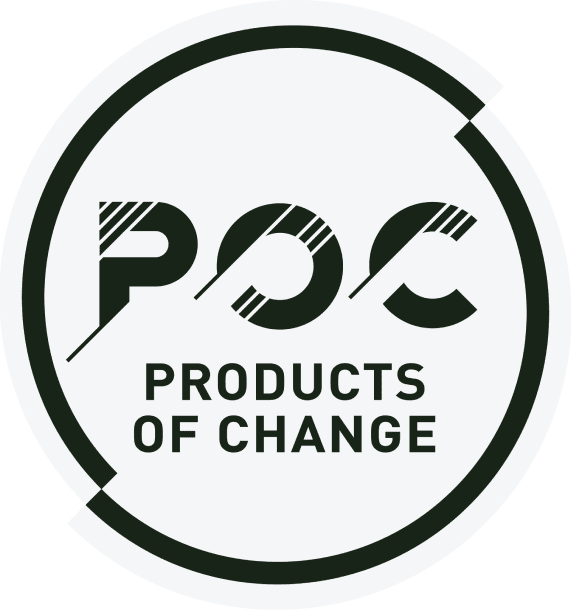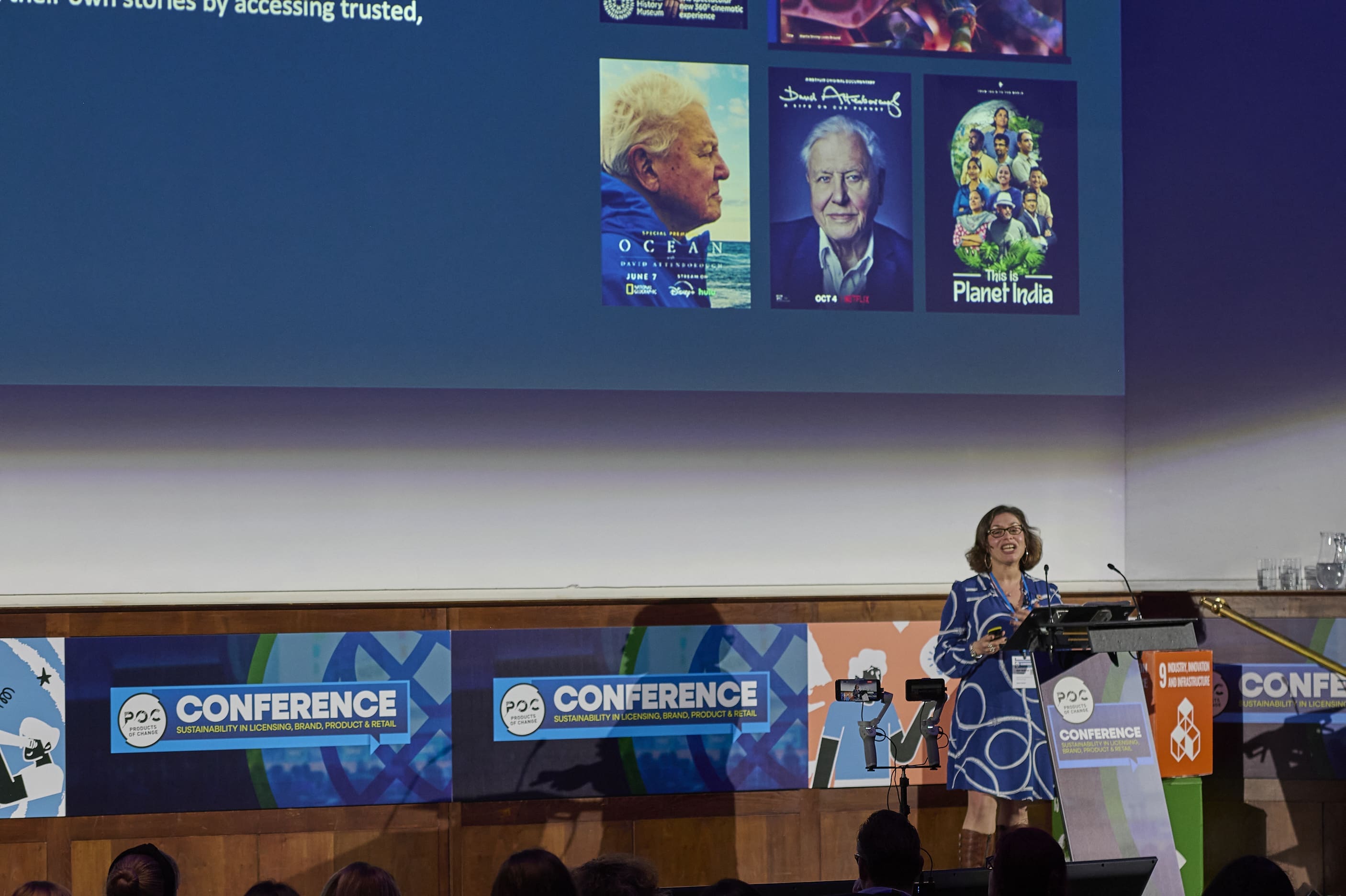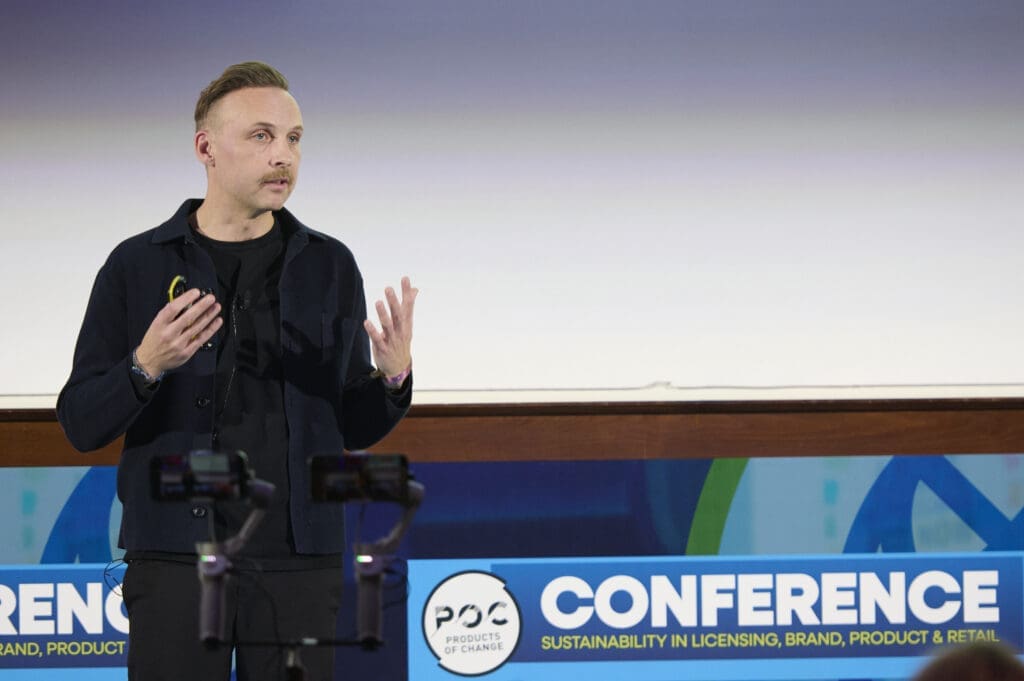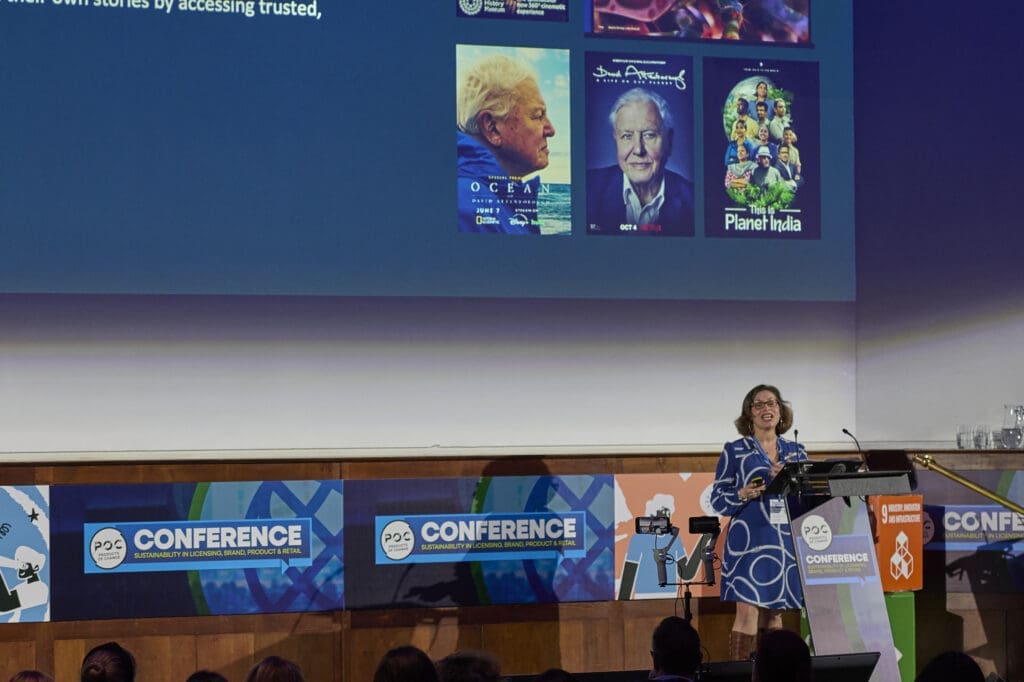After many of us watched awestruck by the new documentary Ocean with David Attenborough earlier this year, we were delighted to bring the creators behind such an impactful piece of storytelling to the Conference this year.
Kate Goldman Toomey, executive director of partnerships at production studio and open-source film library, Open Planet, took the stage as a keynote speaker of the day.
Quoting Sir David Attenborough, Kate said “Saving our planet is no longer a scientific challenge – it is also a communications challenge.”
So Kate’s goal at the Conference was to emphasise the role of storytelling, and how it can support and drive change. We are living in a critical decade, the stakes are high but “we have the solutions, we know what to do, but political will is falling short, action is slow, we are seeing rising myths and disinformation, and there is a crisis of imagination,” said Kate.
However, there is progress happening, she emphasised – in 2009 we were on track for a 4°C increase of our global climate, now we are at 2.6°C, and in the first six months of this year, renewable energy production outstripped coal.
With 89% of the population saying they want to see bolder action on climate; the appetite is there.
“You have the agency to drive change,” said Kate, “We believe stories are a really powerful catalyst and tool for change. They help us make sense of the world, and make abstract concepts personal and relevant. They influence how we feel and act and people act when they believe change is possible.”
Even more so when it comes from sources and brands they know and trust, “so as responsible brands, you have a huge opportunity to tell these stories. We can help you to do that,” added Kate.
The vision of Open Planet is a world where everyone is aware of our planetary emergency and inspired to take bold impact.
It does this through its production studio with large scale documentaries, such as Ocean, immersive experiences such as Our Story at the Natural History Museum at the moment, and short form content for multilateral events such as Cop30, the UN General Assembly, UN Climate Week and on socials.
But it wasn’t enough for Open Planet to tell the important stories, so two years ago it created a not for profit open source library of clips of our world of both issues and solutions, freely available for anyone anywhere for education and impact.
“We want to inspire more people to tell more stories and paint positive vision of the future,” said Kate.
To do so, Open Planet unlocked never before seen footage from the BBC and Netflix, as well as adding its own content from its network of 80 filmmakers around the world that share their content as part of the Open Planet mission.
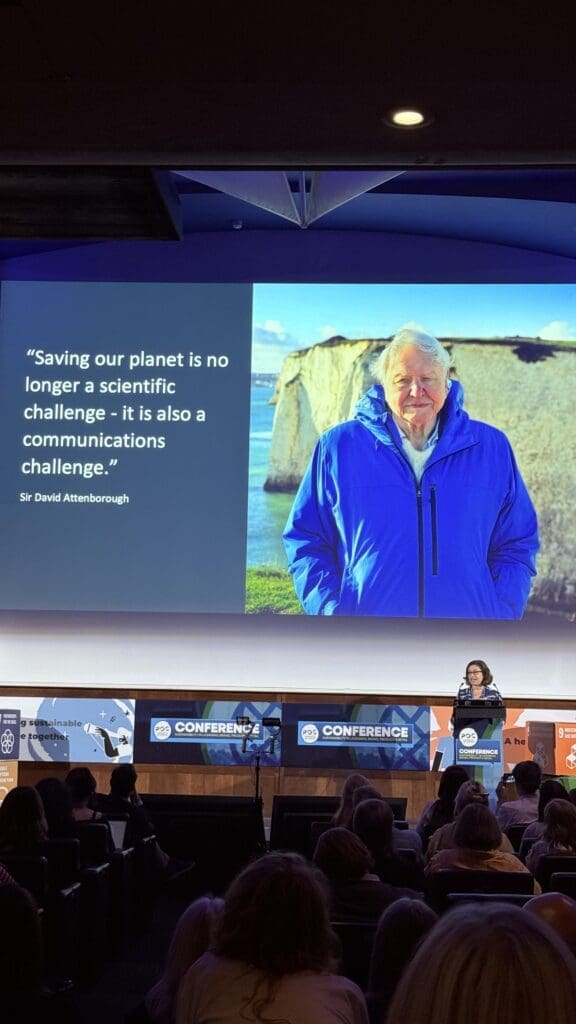
A big part of Open Planet’s strategy is to create big feature documentaries that reach people hundreds of thousands of people around the world, to raise awareness of issues, then engage influencers, empower storytellers, innovate and disrupt to drive the biggest impact.
The most recent example is of course Ocean with David Attenborough. Kate explained the honour of being able to tell this story with Sir David, and drive home the message that to save the sea is to save our world.
It is also a great example of Open Planet’s strategy in practice, as it worked with business leaders around the world and open sourced content. “The results have shocked even us,” said Kate. It had record breaking box office success and is one of the best performing documentaries on Nat Geo.
In particular, the bottom trawling footage went viral and was seen by hundreds of millions around the world, including business leaders. As a result, organisations supporting such issues saw a surge of support. It was also timed to come out for the UN Ocean Conference in June.
One of the issues discussed in the film was the High Seas Treaty, and in September, the final country joined to officially ratify it, so it is coming into force. Kate said that they have been informed by various leaders that the film was instrumental in this.
“But it’s not just about the stories we tell, it’s how we are supporting storytellers and changemakers around the world,” said Kate.
Open Planet is currently supporting changemakers in 110 countries around the world, working with UN agencies, through to grassroots communities, educators, scientists and businesses. She says they are seeing storytelling used more and more, as stories cut through; people are 22x more likely to remember information if it is wrapped in a story, noted Kate.
For the next project, members of the Open Planet team are already working on an impact campaign, for which they are attending Cop30.
“We want to bring together all sort of organisations and individuals to showcase what is possible and the essential role nature plays in our lives, businesses and economies.
“There is no silver bullet to our planet emergency – it is going to take us all, and we want to support changemakers like you,” concluded Kate.
To end, she shared a poignant quote from Sir David Attenborough, central to the immersive exhibit, Our Story, currently running at the Natural History Museum:
“Now is the most exciting time in history to be alive. For in the vastness of space, the unimaginable extents of time, your life is truly significant. You have the opportunity to write the next chapter in our story, and you have the whole of the natural world, billions of years in the making, as your ally. Seize this moment… for it will not come again.”
Conference ticket holders can watch back the full Conference here with your unique passcode you can find in your emails (contact hello@productsofchange.com if any issues). You can also still purchase a digital Conference ticket and get full access to all the recordings of the day here.
